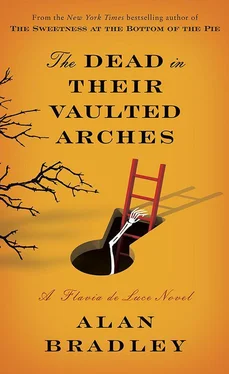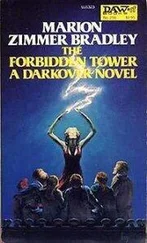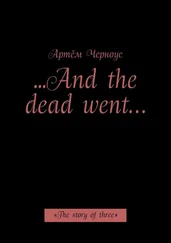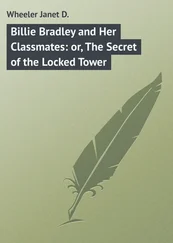“That’s the way the song ends,” she explained. “It’s all I can remember.”
I’ll admit it: I was out of my depth. I needed to get this conversation back under control.
“Kim’s Game,” I reminded her.
“Kim’s Game!” she cried, clapping her hands together with delight. “Twelve assorted objects are placed on a tray and covered with a silk scarf. We’ll have Dogger do it! Then he whisks away the scarf and we have sixty seconds to study the items. The scarf is replaced and we each write down the names of as many as we can. Whoever remembers the most wins. That will be me.”
There was no need for her to explain it to me. We had been made to play the wretched game to distraction on rainy evenings in Girl Guides—that is, until the night I had managed to smuggle a toad and a quite decent-sized adder under the silk.
As I have said before, elsewhere, that organization is not noted for its sense of humor, and I had found myself on that occasion being made to sit in the corner once again wearing Miss Delaney’s handmade but highly irregular “Crown of Thorns,” which may have been amusing to some but not to me.
“Exactly,” I said to Undine. “But just to keep things interesting, let’s play the game a different way this time.”
Undine clapped her hands happily again.
“Let’s pretend that the railway platform is the tray and that all the people on it are the objects we have to remember.”
“That’s not fair!” Undine protested. “I don’t know any of the people—except you and your family … and Mr. Churchill, of course. Ibu pointed you out.”
“You had quite a good view of us, then?”
My Daimler mind was firing on all twelve cylinders.
“Top hole!” she said. “Like a box at the pantomime.”
Something twisted inside me. It didn’t seem right that the arrival of my mother’s body at Buckshaw had been viewed by anyone, let alone this little twerp, as some kind of cheap music-hall entertainment.
“All right, then,” I said, holding myself in check. “I’ll begin. There was Aunt Felicity. She counts for one.”
“And the men in uniforms who lifted your mother from the train. That’s six—I’m winning!”
This was insane, I thought, but the game needed to go on.
“Father, Feely, Daffy, and me,” I said. “And Dogger, of course. Six all.”
“Not fair! I already counted the lot of you. Eleven to me!”
“Mrs. Mullet,” I said, “and her husband, Alf.”
“The vicar!” Undine shouted. “I knew him by his collar! Twelve ho!”
I counted on my fingers: “The woman with Aunt Felicity … the officer who saluted Father …
“The engine driver on the footplate,” I added with sudden inspiration, “the conductor, and the two guards on the van. That’s nine, plus Sheila and Flossie Foster and Clarence Mundy, the taxicab driver.”
Although I thought I had spotted Sheila and Flossie at the edge of the platform, I had picked Clarence’s name out of thin air. Undine would never know the difference.
“Tied at twelve,” I told her. “I’m finished. Last chance.”
Undine gnawed at her knuckles, her brow furrowed. “That man in the long coat!” she said, her face lighting up.
My heart stopped.
“What man in the long coat?” I managed, my voice trembling a little. “You’re making him up.”
“The one who was talking to Ibu!” she shouted. “I win!”
Her face was a little, round glowing orb, red with excited accomplishment.
I even smiled a little myself.
I watched as Undine’s happy smile slowly froze—and then solidified. She was staring over my shoulder—like the stranger at the station—as if she had spotted a specter.
The hair at the back of my neck was already bristling with strange electricity as I turned slowly round.
Lena was standing in the doorway and I swear her eyes were glowing like red coals in the darkness of the hall. How long she had been there, and how much she had overheard, I couldn’t begin to guess.
“Go to your room, Undine,” she said in a voice that was like a cold wind blowing through frozen grass.
Without a word, Undine brushed past me and vanished.
“You mustn’t encourage her,” Lena said when the little girl was gone. She spoke in that same odd voice, as if she were a ventriloquist’s dummy being operated by a cobra. “She’s far too excitable. Living too much in one’s imagination may be detrimental to one’s health.”
She smiled at me and lit a cigarette. When it was drawing to her satisfaction, she blew a trumpet of smoke from a protruding lower lip towards the ceiling.
“Do you understand?”
“Detrimental to one’s health,” I repeated.
“Exxxs-zactly!” Lena said, and let out another cannonade of smoke.
I made a swift calculation of the risk involved and then blurted out: “Who was he? The man in the long coat, I mean?”
Lena touched her cigarette to her lips in a picturesque fashion. “I don’t know what you’re talking about.”
“The man on the railway platform. The one Undine saw you talking to.”
Lena walked over to one of the laboratory’s casement windows, placed her palms on the sill, and stood looking down upon the Visto for what seemed like an eternity.
Was she remembering happier days? Those days when Harriet took off and landed in Blithe Spirit on that grassy expanse?
“How well did you know my mother?” I asked. She had not even answered my first question and here I was already pelting her with another. I was almost, but not quite, aghast at my own boldness.
“Not as well as I should have liked,” she said. “We de Luces, as you know, are a peculiar lot.”
I smiled at her as if I knew what she was talking about.
“ ‘Cousin Excelsior,’ we used to call her in Cornwall. Harriet flew further, farther, and faster than any human being has a right to do. I suppose in some quarters that was resented.”
“In yours?”
I couldn’t believe my mouth!
“No, not in mine.” Lena turned away from the window. “I cared for her a great deal.”
Cared for her a great deal? Those were the precise words Undine had used to express her mother’s feelings towards Harriet.
“In fact,” Lena went on, “we were quite chummy, your mother and I—at least when we ran into each other outside of a family setting.”
I sat there in utter stillness hoping the vacuum created by my silence would attract more words about my mother. I had learned by close observation of Inspector Hewitt’s questioning techniques that silence is a question mark that cannot be ignored.
“I’m going to confide in you,” Lena said at last.
Hallelujah! My trap had worked!
“But you must promise me that what I say goes no further than this room.”
“I promise,” I said, meaning it at the time.
“Undine is a most unusual child,” she said.
I nodded sagely.
“Hers has not been an easy life. She lost her father in tragic circumstances when she was no more than a baby—much like yourself.”
For a moment I took this to be an insult, but then I saw what she meant—that both Undine and I had lost a parent while still in the cradle.
I nodded again, this time sadly.
“Undine is rather a highly strung child, I’m afraid. She requires a very particular kind of handling.”
Lena stopped and stared at me as if she were allowing time for some crucial meaning to penetrate my brain.
Although I knew instantly what she was getting at, I decided to receive her barely coded message by letting my face melt into a slack, village idiot expression. I stopped short, though, of letting my tongue loll out of the corner of my mouth.
One of the marks of a truly great mind, I had discovered, is the ability to feign stupidity on demand.
Читать дальше












